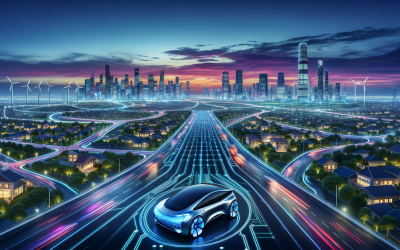There’s something deeply personal about the way a car’s dashboard looks and feels. It’s the command center of your driving experience, the interface between you and the machine. Whether you’re into high-tech gadgetry or classic automotive aesthetics, the battle between digital and analog dashboards is a real one. So how do you decide which one suits your style?
The Appeal of Analog: Timeless and Tangible
For those who appreciate a sense of nostalgia, analog dashboards hold a certain charm. The precision of a well-crafted speedometer, the tactile feel of physical dials clicking into place. There’s a reason why enthusiasts still swear by these setups.
I remember the first time I sat in my grandfather’s vintage Mustang. The dashboard had a distinct personality. Simple, elegant, and built to last. There was something reassuring about seeing a physical needle point to the speed, the fuel gauge gradually moving as the miles rolled by. No distractions, no screens bombarding you with data, just pure driving bliss.
If you love classic cars or want a cockpit that feels mechanical and raw, an analog dashboard might be your perfect match. Many car manufacturers are phasing them out, but retrofitting is still an option if you’re attached to the old-school feel.
Why Some Drivers Prefer Analog
- Simplicity: No complex menus or digital distractions. Just straight-up driving information.
- Reliability: No risk of screen failures, system crashes, or software updates gone wrong.
- Aesthetic Appeal: There’s an undeniable beauty in a well-designed needle sweeping across a classic dial.
Digital Dashboards: A New Level of Customization
On the other end, digital dashboards have revolutionized modern vehicles. With fully customizable displays, vivid graphics, and real-time data integration, they bring the future straight to your fingertips.
Take high-end vehicles like Teslas or BMWs. They’ve ditched traditional dials for sleek digital readouts that adapt to your driving needs. Want a minimalist speed readout? Done. Need a navigation map directly in front of you? Easy. The sheer versatility of these setups is hard to ignore.
I recently test-drove a friend’s Audi with a fully digital instrument cluster, and honestly, it felt like piloting a spaceship. The responsiveness, the ability to configure everything to my liking. It was a glimpse into the future. For tech enthusiasts or those who crave a modernized, high-functioning setup, digital dashboards are an exciting option.
Why Some Drivers Prefer Digital
- Customization: Change layouts, add widgets, and adjust colors to suit your mood or needs.
- Advanced Features: Integrated navigation, real-time traffic updates, and even AI-assisted driving insights.
- Sleek, Modern Look: If you like futuristic vibes, a digital cockpit completes the aesthetic.
Which One Is Right for You?
The choice ultimately comes down to your preferences and driving style. Are you someone who values nostalgia, simplicity, and mechanical charm? Or do you want a high-tech, futuristic interface bursting with features?
If you’re customizing your car’s dashboard, consider these factors:
- What’s your driving philosophy? If you drive for the pure thrill of mechanics, an analog setup might resonate more. If you thrive on tech and convenience, digital is the way to go.
- How much tech do you want? Digital interfaces offer an array of modern conveniences, but they can be overwhelming if you prefer straightforward information.
- Do you trust software over mechanical parts? A mechanical gauge is far less likely to fail than a digital system that might glitch or require an update at the wrong time.
Blending the Best of Both Worlds
Not ready to pick a side? Some vehicles now feature hybrid dashboards, where analog dials are complemented by a digital display. This setup allows for a traditional feel while integrating modern benefits like navigation and safety alerts.
For those restoring or modifying their vehicles, aftermarket digital dash kits can add a futuristic twist to a classic model. Similarly, a carefully chosen gauge cluster can bring a bit of old-school charm to a modern ride.
Whatever you choose, remember: your dashboard should reflect your personality as much as the car itself. Whether it’s the timeless elegance of analog or the limitless potential of digital, make sure it enhances your connection to the road. If you’re looking for inspiration, exploring dashboard upgrade options can help you find the perfect balance.
Frequently Asked Questions
Is it possible to replace an analog dashboard with a digital one?
Yes, but it depends on your vehicle. Some modern cars support plug-and-play digital dash upgrades, while older models may require significant rewiring and custom fabrication. Always check compatibility before committing to a swap.
Do digital dashboards require regular software updates?
Most modern digital dashboards run on software that may need periodic updates, either for functionality improvements or to fix bugs. Some manufacturers push updates remotely, while others require a visit to the dealership.
Are analog dashboards becoming obsolete?
Many automakers are shifting towards fully digital setups, but analog dashboards can still be found in many cars, especially in budget-friendly models and classic vehicles. The demand in enthusiast circles ensures they won’t disappear entirely.
Which type of dashboard is better for nighttime driving?
Digital dashboards provide better visibility at night since brightness levels adjust automatically and can reduce eye strain. However, some drivers prefer analog gauges for their simplicity and lack of screen glare.
Can a digital dashboard malfunction while driving?
Like any electronic system, digital dashboards can experience glitches or failures. While rare, these issues can sometimes be resolved with a restart, but in severe cases, a trip to the mechanic may be necessary.

